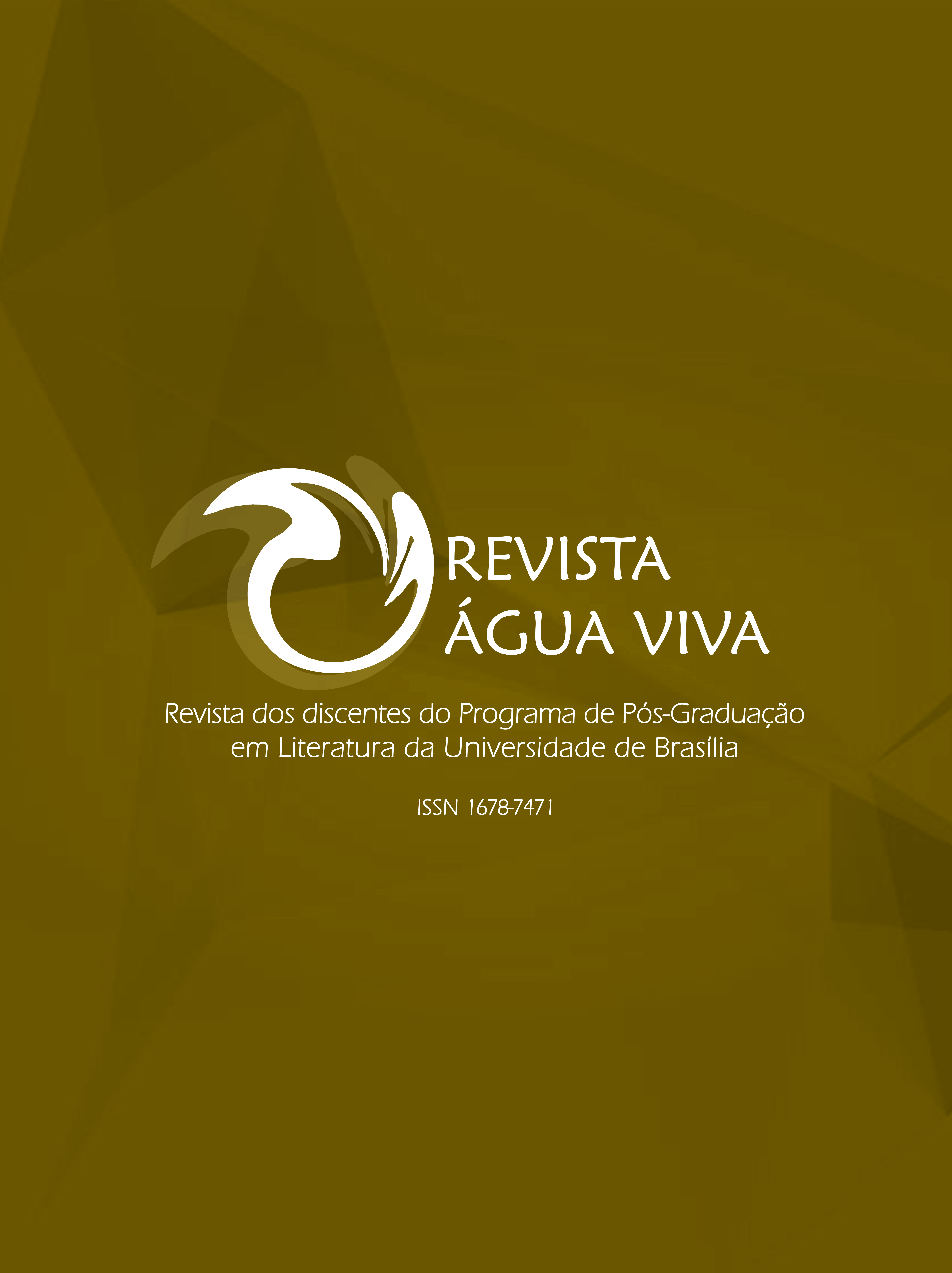JORNAL DO CONHECIMENTO: GÊNEROS JORNALÍSTICOS E ENSINO DE LÍNGUA MATERNA
DOI :
https://doi.org/10.26512/aguaviva.v5i3.31304Mots-clés :
Gêneros Textuais. Gêneros Jornalísticos. Jornal do Conhecimento.Résumé
In this paper, we present an experience report about the planning and implementation of textual production workshops, in the sphere of journalistic genres, developed within the Programa Institucional de Bolsa de Iniciação à Docência (PIBID), of the Course of Letters/Portuguese at the Federal University of Piauí (UFPI), Campus Senador Helvídio Nunes de Barros, in Picos - PI. The activities were carried out through workshops with students of the 1st, 2nd and 3rd years of high school, which promoted the production and creation of the Jornal do Conhecimento of Centro Estadual de Tempo Integral (CETI) Marcos Parente. We therefore aim at: a) report our experience during the period of activity and development of the school newspaper; b) address the work with textual genres at school; and c) reflect on the contributions of these activities to the students' teaching-learning process. For the materialization of this proposal, a bibliographical research was initially made, based on the theoretical foundations of Bakhtin (2003), Marcuschi (2005), Traquina (2005), Lage (2001, 2005), among others. Then, workshops on journalistic genres were held. We evidenced that the practice of activities focused on these genres motivated the development of the reading and writing of the students, so that these actions worked as an instrument of interaction of the students in their school experience.
Téléchargements
Références
BAZERMAN, C. Gêneros textuais, tipificação e interação. 2 ed. São Paulo: Cortez, 2006.
BOCCATO, V. R. C. Metodologia da pesquisa bibliográfica na área odontológica e o artigo científico como forma de comunicação. Revista de Odontologia da Universidade Cidade São Paulo, São Paulo, v. 18, n. 3, p. 265-274, 2006.
BRANDÃO, H. H. N.; MICHELETTI, G. Teoria e prática da leitura. In: Coletânea de textos didáticos. Componente curricular Leitura e elaboração de textos. Curso de Pedagogia em Serviço. Campina Grande: UEPB, 2002, p. 9.
BRASIL. Parâmetros Curriculares Nacionais: terceiro e quarto ciclos do ensino fundamental: língua portuguesa. Secretaria de Educação Fundamental ”“ Brasília: MEC/SEF, 1998.
BRASIL. Parâmetros Curriculares Nacionais: Ensino Médio. Secretaria de Educação Fundamental ”“ Brasília: MEC/SEF, 2000.
FARIA, M. A. O. Como usar o jornal na sala de aula. 10. ed, 1ª reimpressão. ”“ São Paulo: Contexto, 2008.
FIORIN, J. L. (Org). Linguística? O que é isso? São Paulo: Contexto, 2013.
GAGLIARDI, E.; AMARAL, H. Escrevendo o Futuro: Olimpíadas da Língua Portuguesa. São Paulo: Cenpec, 2004.
LAGE, N. A estrutura da notícia. São Paulo: Editora Ática, 2005.
LAGE, N. Teoria e técnica de reportagem, entrevista e pesquisa jornalística. Rio de Janeiro. 2001. Disponível em: <http://nilsonlage.com.br/wp-content/uploads/2017/10/A-reportagem.pdf>. Acesso em 11 de outubro de 2019.
MARCUSCHI, L. A. Gêneros textuais: definição e funcionalidade. In.: DIONÍSIO, A. P. Gêneros textuais e ensino. 4. ed. Rio de Janeiro: Lucerna, 2005, p. 31.
SCHNEUWLY, B.; DOLZ, J. Gêneros orais e escritos na escola. Tradução Roxane Rojo e Glais S. Cordeiro. Campinas: Mercado de Letras, 2004.
SILVA, Eduardo Dias da; SOUZA-DIAS, Romar; NASCIMENTO, Juscelino Francisco do. Language policies for the teaching of foreign language in public basic education in the Distrito Federal. Revista Com Censo: Estudos Educacionais do Distrito Federal, [S.l.], v. 6, n. 2, p. 22-33, mai. 2019. ISSN 2359-2494. Disponível em: <http://periodicos.se.df.gov.br/index.php/comcenso/article/view/623>. Acesso em: 02 mai. 2020.
TRAQUINA, N. Teorias do jornalismo: porque as notícias são como são. Florianópolis: Insular, 2 ed., 2005. 224p.
SWALES, J. Genreanalysis: English in academicandresearch settings. Cambridge: Cambridge University Press, p. 262, 1990.
Téléchargements
Publié-e
Comment citer
Numéro
Rubrique
Licence
(c) Tous droits réservés Revista Água Viva 2020

Cette œuvre est sous licence Creative Commons Attribution - Pas d'Utilisation Commerciale - Pas de Modification 4.0 International.
Direitos Autorais para artigos publicados nesta revista são do autor, com direitos de primeira publicação para a revista. Em virtude da aparecerem nesta revista de acesso público, os artigos são de uso gratuito, com atribuições próprias, em aplicações educacionais e não-comerciais.













